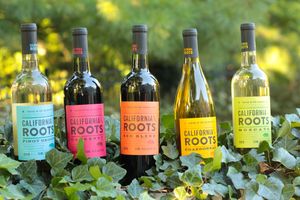Silver Oak Wine: A Guide to the Napa Valley Winery's Best Bottles
Silver Oak Wine is a highly sought-after wine brand that is known for producing some of the best Cabernet Sauvignon wines in the world. The winery was established in 1972 by Ray Duncan and Justin Meyer with the aim of producing only Cabernet Sauvignon. Today, the winery is operated by Ray's sons David Duncan, who serves as the President and CEO, and his brother, Tim Duncan, who serves as Executive Vice President.
Silver Oak has two wineries, one in Oakville in the Napa Valley and the other in Geyserville in the Alexander Valley. Both wineries are known for their beautiful architecture and stunning views, making them popular tourist destinations. The winery in Oakville is particularly famous for its underground cellar, which houses some of the winery's oldest and most prized vintages.
Silver Oak's commitment to producing only the finest Cabernet Sauvignon wines is evident in the quality of their wines. The winery uses only the best grapes from their own vineyards and those of carefully selected growers to produce wines that are rich, complex, and full-bodied. The winery's dedication to quality has earned them a loyal following of wine enthusiasts who eagerly await each new vintage.
History of Silver Oak Wine
Silver Oak Wine was founded in 1972 by Ray Duncan and Justin Meyer. The two friends shared a passion for winemaking and wanted to create a wine that was worthy of cellaring for decades to come. They decided to focus on one varietal, Cabernet Sauvignon, and age it exclusively in American oak.
The first vintage of Silver Oak Cabernet Sauvignon was released in 1979, and it quickly gained a reputation for its rich, complex flavors and ability to age gracefully. The winery's commitment to quality and consistency has remained unchanged over the years, and today, Silver Oak is known as one of California's most successful wineries.
In 1994, Silver Oak expanded its portfolio with the creation of Twomey Cellars, which produces Pinot Noir, Merlot, and Sauvignon Blanc. The winery's commitment to sustainability is evident in its use of solar power, water conservation practices, and organic farming methods.
Today, Silver Oak is operated by Ray's sons, David and Tim Duncan. The winery has two locations, one in Oakville in the heart of the Napa Valley wine country, and one in Healdsburg in the Alexander Valley. Silver Oak's wines continue to receive critical acclaim and are highly sought after by collectors and wine enthusiasts around the world.
Production Process
Silver Oak wine is known for its unique and distinct flavor, which is a result of the meticulous production process. The production process of Silver Oak wine can be broken down into five main stages: Vineyard, Harvesting, Fermentation, Aging, and Bottling.
Vineyard
The production process of Silver Oak wine starts in the vineyard. Silver Oak owns two vineyards, one in Alexander Valley and the other in Napa Valley. The vineyards are located in ideal growing conditions, with the right soil type, climate, and topography. Silver Oak uses sustainable farming practices, which include cover crops, composting, and drip irrigation, to ensure the health of the vineyard and the quality of the grapes.
Harvesting
Once the grapes have reached the perfect ripeness, they are harvested by hand. The grapes are then sorted to remove any unwanted material, such as leaves or stems. The grapes are then crushed, and the juice is placed into stainless steel tanks for fermentation.
Fermentation
During fermentation, yeast is added to the grape juice to convert the sugar into alcohol. Silver Oak uses a combination of stainless steel tanks and oak barrels for fermentation. The oak barrels are used to add flavor and complexity to the wine. The fermentation process takes around two weeks to complete.
Aging
After fermentation, the wine is aged in oak barrels for around two years. Silver Oak uses American oak barrels, which are toasted to add flavor and aroma to the wine. The aging process allows the wine to develop its distinct flavor and complexity.
Bottling
Once the wine has been aged, it is bottled and labeled. Silver Oak uses a unique bottle design, which is taller and thinner than most wine bottles. The wine is then stored in the bottle for around six months to allow the flavors to blend together.
Overall, the production process of Silver Oak wine is a combination of art and science. The attention to detail and the use of sustainable farming practices ensure that the wine is of the highest quality. The unique flavor and complexity of Silver Oak wine are a result of the combination of the perfect growing conditions, the meticulous production process, and the use of American oak barrels.
Varieties of Silver Oak Wine
Silver Oak Cellars produces Cabernet Sauvignon exclusively. They produce two different Cabernet Sauvignon wines, one from Napa Valley and the other from Alexander Valley.
The Napa Valley Cabernet Sauvignon is known for its complexity and balance. The wine is aged for 24 months in American oak barrels and has aromas of black cherry, currant, and vanilla. The wine has a full-bodied flavor with hints of dark chocolate and tobacco.
The Alexander Valley Cabernet Sauvignon is known for its fruit-forward flavors. The wine is aged for 24 months in American oak barrels and has aromas of blackberry, cassis, and vanilla. The wine has a smooth texture with flavors of black cherry, plum, and a hint of spice.
Both wines are made with 100% Cabernet Sauvignon grapes and are considered to be some of the best Cabernet Sauvignon wines in the world. Silver Oak Cellars is committed to producing high-quality wines that are food-friendly and can be enjoyed for years to come.
Taste Profile
Silver Oak wine is known for its rich and robust taste profile, which is attributed to its use of high-quality grapes and oak barrels during the aging process. The wine is primarily made from Cabernet Sauvignon grapes, which are known for their bold and full-bodied flavor.
When tasting Silver Oak wine, one can expect to experience a complex blend of flavors, including black currant, blackberry, vanilla, and oak. The wine has a smooth and velvety texture, with a long and lingering finish that leaves a pleasant aftertaste.
The taste profile of Silver Oak wine can vary slightly depending on the vintage and region where the grapes were grown. For example, the Napa Valley Cabernet Sauvignon has a more fruit-forward taste profile, while the Alexander Valley Cabernet Sauvignon has a more earthy and spicy flavor.
It's worth noting that Silver Oak wine is known for its ageability, meaning that it can be cellared for several years to enhance its taste profile. The winery recommends cellaring their Cabernet Sauvignon for up to 20 years, which can result in a more complex and nuanced flavor profile.
Overall, Silver Oak wine is a favorite among wine enthusiasts for its rich and bold taste profile, which is sure to impress even the most discerning palate.
Pairing Silver Oak Wine
Silver Oak wines are known for their rich and full-bodied flavors, making them a great choice for pairing with a variety of foods. Here are some tips for pairing Silver Oak wine with your next meal:
Cabernet Sauvignon
Silver Oak's Cabernet Sauvignon is a classic wine that pairs well with a variety of dishes. The wine's full-bodied flavor and tannins make it an excellent match for red meats, such as steak and lamb. It also pairs well with rich sauces, like béarnaise or bordelaise, and with bold, flavorful cheeses, such as blue cheese or aged cheddar.
For a lighter meal, try pairing Silver Oak's Cabernet Sauvignon with roasted vegetables, such as carrots or mushrooms. The wine's tannins and acidity help cut through the richness of the vegetables, while its fruit flavors complement their natural sweetness.
Napa Valley Cabernet Sauvignon
Silver Oak's Napa Valley Cabernet Sauvignon is a more complex wine than the classic Cabernet Sauvignon, with a greater depth of flavor and more pronounced tannins. This wine pairs well with hearty, meaty dishes, such as beef stew or braised short ribs. It also goes well with spicy foods, such as Indian or Mexican cuisine, as the wine's tannins help to balance out the heat.
For a lighter meal, try pairing Silver Oak's Napa Valley Cabernet Sauvignon with grilled vegetables or roasted chicken. The wine's tannins and acidity help to cut through the richness of the chicken, while its fruit flavors complement the vegetables.
Twomey Merlot
Silver Oak's Twomey Merlot is a versatile wine that pairs well with a variety of dishes. This wine has a softer, more approachable flavor than the Cabernet Sauvignons, with notes of cherry and blackberry. It pairs well with roasted meats, such as pork or beef, as well as with rich, creamy sauces, like béchamel or hollandaise.
For a lighter meal, try pairing Silver Oak's Twomey Merlot with grilled vegetables or roasted salmon. The wine's fruit flavors complement the natural sweetness of the vegetables and the salmon, while its soft tannins help to balance out the richness of the fish.
Overall, Silver Oak wines are a great choice for pairing with a variety of foods. Whether you're enjoying a classic Cabernet Sauvignon or a more complex Napa Valley Cabernet Sauvignon or Twomey Merlot, these wines are sure to enhance the flavors of your meal and make for a memorable dining experience.
Reviews and Ratings
Silver Oak is a highly respected winery in Napa Valley and Alexander Valley, known for producing some of the best Cabernet Sauvignon wines in the world. The winery has received numerous positive reviews and high ratings from wine critics and enthusiasts alike.
The 2018 Silver Oak Cabernet Sauvignon Napa Valley received a 97 point rating from California Wine Advisors, who called it "the most seriously age-worthy vintage to date." The wine is described as having "notes of blackberry, black cherry, and vanilla with a hint of toasted oak." Wine.com users have rated the 2018 Alexander Valley Cabernet Sauvignon 4.5 out of 5 stars, noting its "juicy, fruit-forward core."
The 2015 Silver Oak Alexander Valley Cabernet Sauvignon has also received high praise. The Wine Daily described it as "lush, layered, and intensely aromatic," while Wine Enthusiast awarded it a score of 93 points, calling it "a crowd-pleaser." The wine has notes of "black cherry, cassis, and vanilla."
In addition to these recent vintages, Silver Oak's older wines have also received high ratings. The 2010 Napa Valley Cabernet Sauvignon was rated 96 points by Wine Advocate, who called it "a stunning wine." The 2007 Alexander Valley Cabernet Sauvignon was rated 94 points by Wine Spectator, who called it "a rich, full-bodied wine."
Overall, Silver Oak's wines are consistently well-reviewed and highly rated. Wine enthusiasts can expect to find complex, flavorful wines with notes of dark fruit, oak, and vanilla. It's no wonder that Silver Oak is considered one of the best wineries in California.
Purchasing Silver Oak Wine
For those interested in purchasing Silver Oak wine, there are several options available.
First, customers can visit the official Silver Oak website to shop for their wines. The website offers a wide range of Cabernet Sauvignon wines from both their Napa Valley and Alexander Valley wineries. Customers can also purchase merchandise and pre-etched bottles from the website. Shipping is included on limited edition offers.
Second, customers can use the "Find Our Wines" feature on the Silver Oak website to locate their wines in their area. This feature allows customers to search by entering any combination of the fields such as street, city, state, and/or zip code.
Third, customers can visit Total Wine & More to purchase Silver Oak wines in-store or online. Total Wine & More offers both the Silver Oak Cabernet Sauvignon Alexander Valley and Napa Valley wines.
Finally, customers can visit their local wine shop or restaurant to inquire about their selection of Silver Oak wines. Many wine shops and restaurants carry Silver Oak wines and may offer them at a competitive price.
Overall, purchasing Silver Oak wine is easy and accessible through their website, Total Wine & More, local wine shops, and restaurants.
Serving and Storage
When it comes to serving and storing Silver Oak wine, there are a few key things to keep in mind. Here are some tips to help you get the most out of your bottle:
Serving
Temperature: It's important to serve Silver Oak wine at the right temperature to enhance its flavor and aroma. The ideal serving temperature for most Silver Oak wines is between 59-64 °F (15-18 °C). This can be achieved by storing the bottle in a cool, dark place and then placing it in the refrigerator for about 30 minutes before serving.
Decanting: Decanting can help to aerate the wine and bring out its full flavor and aroma. For most Silver Oak wines, it's recommended to decant the wine for about an hour before serving.
Glassware: Choosing the right glassware can also enhance the wine-drinking experience. For Silver Oak wines, it's best to use Bordeaux-style glasses, which have a tall, narrow bowl that helps to concentrate the aroma and flavor of the wine.
Storage
Temperature: Proper storage is essential to ensure the quality and longevity of your Silver Oak wine. It's best to store the wine in a cool, dark place with a consistent temperature of around 55-60°F (12-15°C).
Humidity: Humidity is also important, as it helps to keep the cork moist and prevent it from drying out and allowing air to enter the bottle. Aim for a humidity level of around 70-75%.
Positioning: To keep the cork moist and prevent air from entering the bottle, it's best to store Silver Oak wine bottles on their side. This allows the wine to come into contact with the cork and keep it moist.
By following these tips for serving and storing Silver Oak wine, you can ensure that you get the most out of your bottle and enjoy it to the fullest.



Member discussion